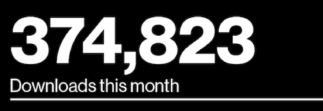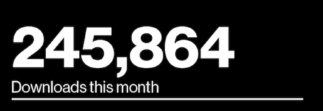During International Open Access Week, the MIT Faculty Open Access Working Group and the MIT Libraries co-sponsored a panel discussion about new models of open access publishing, which is now available through TechTV. A central theme was the merits of moving not just to open access publishing — thus allowing readers access without payment — but making what is arguably a more radical shift, to open peer review.
Tibor Tscheke, of the soon-to-be-launched publishing platform ScienceOpen.com
Tscheke, CFO and CTO of ScienceOpen.com, an open access publishing platform, commented that the “concept of journals will go away” in the not-too-distant future, given that there is no longer the need for this kind of “container.” Publishing will move from being a product to being a service. One of the “most culturally interesting changes,” Tscheke believes, will be the break with walled peer review, which will be transformed into “public post-publication peer review.” This new model will improve upon problems with existing peer review, including delays in publication, closed commentary, and binary decision making about the value of an article.
In response to questions about how the system would work without the editorial role that points to works ‘objectively,’ Tscheke questioned in turn whether a closed-door process that selects peer reviewers is in fact “objective.” With increased numbers of reviewers, including one’s direct peers around the world, the process would be improved.
Jacqueline Thai, of the new open access journal PeerJ
Thai, Head of Publishing Operations at PeerJ, picked up immediately on the theme of open, signed peer review, indicating that PeerJ has this option. While some questioned whether people would be willing to engage in open peer review, Thai reported that 73% of their authors are choosing to share their review history openly, and that 40% of their reviewers sign their reviews. (Reviewers are given incentives by PeerJ to sign the reviews).
Asked about the recent “sting,” in which a large percentage of open access journals that were sent a fake paper published it, Thai responded that the incident reflected problems with peer review that are inherent in how journals are run, not problems specific to open access journals.
Tscheke concurred, indicating that the way to avoid such problems is to open up peer review publicly so that a fake submission is not worthwhile, presumably because it would quickly be seen as a fake when the review process is cast open so widely.
Marguerite Avery, of MIT Press and the Berkman Center for Internet and Society
Avery is Senior Acquisitions Editor at The MIT Press. From her perspective in book publishing, she provided a foil for the two article-focused speakers, noting for example that open peer review and relying on the “wisdom of the crowd,” is unlikely to work when the object to be reviewed is a 500-page manuscript. She also questioned whether the “hidden labor” involved in time-consuming peer review has been fully addressed by the open models, and what would happen to work that was never reviewed.
Tscheke responded that such a lack of reviews may mean the work is simply not interesting enough. And ultimately, he said, “there is no perfect system — but there is more perfection in transparency than in hidden processes.”
The video, including the full panel discussion, is available under a Creative Commons Attribution license, and may be freely reused, adapted, and shared.
Ellen Finnie Duranceau / Program Manager, Scholarly Publishing, Copyright, and Licensing.





